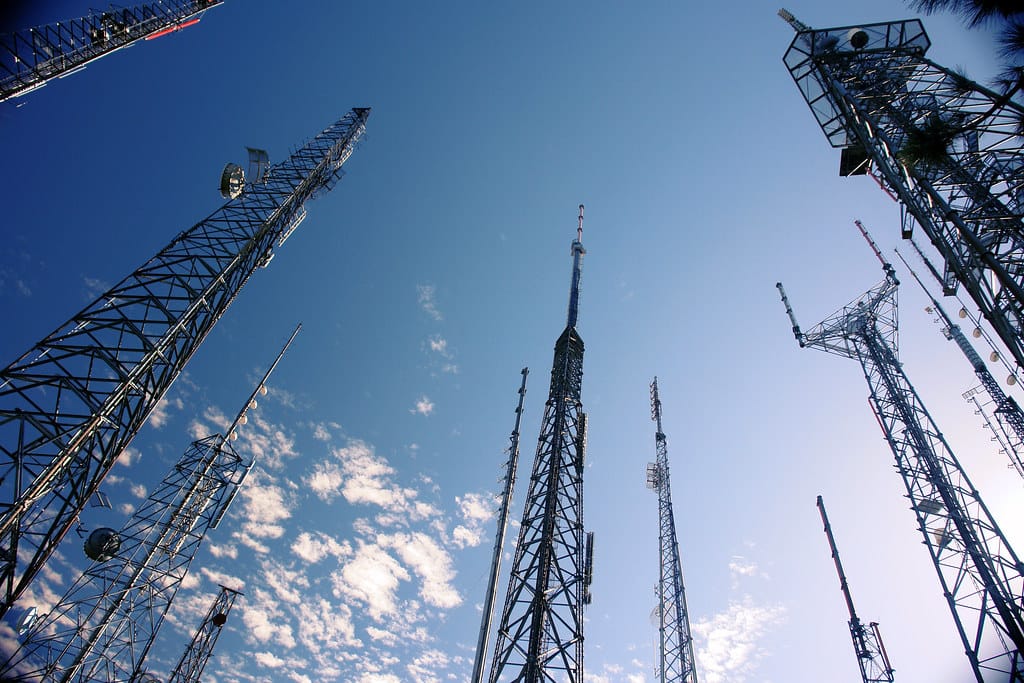AT&T Shells Out $23 Billion for EchoStar Spectrum in Massive Wireless Infrastructure Play
AT&T has announced a blockbuster $23 billion all-cash acquisition of wireless spectrum assets from satellite communications company EchoStar, marking one of the telecommunications industry's largest spectrum deals in recent years. This strategic move positions the telecom giant to significantly expand its 5G network capabilities and strengthen its competitive stance against rivals Verizon and T-Mobile.
The Deal That's Reshaping Wireless Competition
The agreement, which requires regulatory approval, involves AT&T purchasing prime mid-band spectrum licenses that EchoStar has held but largely left unused. This spectrum, operating in the 2.5 GHz band, is particularly valuable for 5G deployment as it offers an optimal balance between coverage range and data capacity.
For AT&T, this acquisition represents more than just spectrum accumulation—it's a defensive play against T-Mobile's aggressive 5G expansion and a bid to close the coverage gap that has emerged following the Sprint-T-Mobile merger. The deal will give AT&T access to approximately 40 MHz of nationwide mid-band spectrum, substantially boosting its 5G infrastructure potential.
Why This Spectrum Matters for 5G Networks
Mid-band spectrum sits in the sweet spot for 5G deployment. Unlike high-band spectrum that offers blazing speeds but limited range, or low-band spectrum that provides broad coverage but slower speeds, mid-band spectrum delivers both respectable speeds and meaningful coverage areas.
T-Mobile gained a significant advantage in this space through its acquisition of Sprint's 2.5 GHz holdings, which helped the company claim the title of America's largest 5G network. AT&T's purchase of EchoStar's spectrum assets is clearly designed to level the playing field and provide the network density needed to compete effectively in major metropolitan markets.
The timing is particularly crucial as businesses and consumers increasingly demand reliable 5G connectivity for everything from remote work applications to IoT deployments and augmented reality experiences.
EchoStar's Strategic Exit and Financial Windfall
For EchoStar, this deal represents a strategic pivot away from terrestrial wireless ambitions back to its satellite communications roots. The company had been sitting on these valuable spectrum licenses for years, paying significant annual fees to the FCC while failing to build out a competitive wireless network.
The $23 billion windfall provides EchoStar with substantial capital to invest in its core satellite internet business, particularly as it competes with SpaceX's Starlink and Amazon's Project Kuiper in the growing low-Earth orbit broadband market. This cash infusion could accelerate EchoStar's next-generation satellite deployments and technology upgrades.
The deal also relieves EchoStar of the regulatory pressure to meet FCC buildout requirements for the spectrum licenses, which carried deadlines that the company was struggling to meet with limited wireless infrastructure investment.
Market Impact and Competitive Implications
Industry analysts view this acquisition as a game-changing move that could reshape the competitive dynamics of the U.S. wireless market. With Verizon facing its own spectrum constraints and T-Mobile riding high on its Sprint acquisition benefits, AT&T's massive spectrum purchase signals its intention to remain a formidable competitor in the 5G era.
The deal also highlights the premium value of mid-band spectrum in today's market. At approximately $575 million per MHz-POP (megahertz per population), this transaction sets a new benchmark for spectrum valuations and suggests that wireless carriers view 5G infrastructure as critical to their long-term competitive positioning.
Regulatory Hurdles and Timeline
The transaction must clear several regulatory hurdles, including approval from the Federal Communications Commission and potentially the Department of Justice. Given AT&T's recent history with large acquisitions—including its troubled Time Warner purchase and subsequent divestiture—regulators will likely scrutinize this deal carefully.
However, unlike content acquisitions that raise vertical integration concerns, spectrum purchases typically face fewer antitrust obstacles, particularly when they help maintain competitive balance in the wireless market.
The Bottom Line
AT&T's $23 billion bet on EchoStar's spectrum represents a pivotal moment for both companies and the broader wireless industry. For AT&T, it's an expensive but potentially crucial investment in 5G competitiveness. For EchoStar, it's a strategic exit that provides the capital needed to focus on satellite communications.
As 5G deployment accelerates and wireless data demand continues growing exponentially, this deal underscores how spectrum has become the most valuable real estate in the digital economy—worth paying premium prices to secure.
